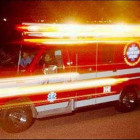
Oct 16, 2014
One of the biggest sticking points that most EMS systems have when it comes to being overworked is figuring out what the definition of an emergency is. Right now, that definition is subjective, much like a pain scale. Just watch any social media outlet, and you will find some provider complaining about responding to some level of nonsense. We forget that the patient or the bystander is the one who gauges how bad a situation is, not the person on the other end of the phone or the responding EMTs and paramedics. One of the best paramedics I ever worked with walked into every situation with the same calm demeanor because, as he would put it, “its not my emergency.”
Currently, there are a number of EMS systems around the country that are plagued by lengthy response times. The public is outraged. Departments that hung their hat one the concept of “we can do it faster, so therefore, we can do it better” are scrambling to find answers. But really, the answer is right in front of them, and it starts with admitting that they were wrong.
One of the most influential articles that I have read over the last five years was the one that I have quoted numerous times about response times and patient outcomes for MedStar Mobile Healthcare (formerly MedStar EMS) during the Dallas Super Bowl, which was accompanied by a snowstorm. They found that despite their longer response times, their mortality rates did not go up. Their patient outcomes largely were not affected. They proved the point that the paramedic caring for the patient was far more important than how fast they go there.
Think about the anatomy of many of these runs that we go on. We response lights and sirens to the patient with flu-like symptoms because nothing is more important than getting an ambulance in front of their residence in less than 9 minutes. Not a paramedic at the patient’s side, but an ambulance, capable of transporting a patient to the hospital, parked in front of their house in a desired amount of time. We load this patient up into the ambulance and head off to the ER. When we get there, they are deemed to not be nearly as sick as everyone else there. In fact, their condition probably could have been dealt with in their primary care doctor’s office if they even have one of those. They are triaged to a hallway bed, or in some ER’s, out to the waiting room with all of the walk in patients.
Why should this patient with the flu who will likely sit for hours without receiving any treatment need the same lights and sirens under 9 minute response as the patient in cardiac arrest? They should not, but they do because we have lied to the public and led them to believe that response times globally matter.
The evidence is everywhere. Why are rural services not showing a higher patient mortality rates due to their longer fifteen to twenty minute response times? Why are people not dying by the hundreds because ambulances are delayed getting to them when a winter noreaster hits New England? We know the answer, and I have preached it time and time again on this blog: excluding cardiac and respiratory arrest, with very few exceptions, response times do not matter as much as we lead the general public to believe.
This is the struggle that I see for departments like San Francisco and DCFEMS. They have to admit that they were wrong. They have to somehow convince the public, their respective governing EMS agencies, and politicians that maybe getting the trucks there as fast as they are does not matter as much as they once led them to believe. Eating some crow and admitting that might be the first step towards saving their allegedly struggling systems.
I find reading these articles about San Francisco especially interesting. Most of them revolve around long response times, or neighbors of politicians waiting lengthy amounts of time for ambulances, like what happened in New York City. What is excluded from these articles is the actual patient outcome. How were they affected by the delay? Were they even affected by it? No one seems to want to talk about that.
The problem then, is who determines what response is necessary? First, we need to rework Priority Medical Dispatch, and maybe even rethink who we are putting in the chair and allowing to answer the phone. I took an Emergency Medical Dispatch class once, and the first thing that I was told was, “you have to not think like a paramedic. You need to operate in a vacuum and go by what the cards tell you.”
Let’s stop lying to ourselves, and lets start reworking our system and our approach to how we deal with the people who question us. When they say, “it took 15 minutes for you to get to my loved one!” Let’s be ready to respond with, “But you had the best trained, best equipped paramedic at your loved one’s side when they got there, and they are better off because of it.”
